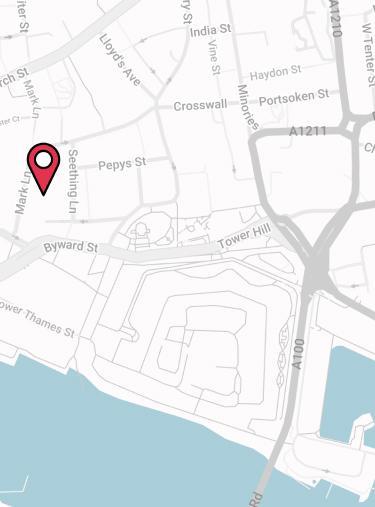
Over 50 and looking for Health Insurance to help ensure you keep fit and healthy as you age? You’re in the right place.
Although most Private Health Insurance policies do have a maximum age in which someone can buy a policy, it’s definitely possible for you to get cover. Many insurers have developed specific products designed with those aged over 50 in mind.
Carry on reading to get a better idea of what Over 50s Health Insurance can offer you and learn more about what exactly it can cover.
What Is Over 50s Health Insurance?
Over 50s Private Health Insurance is a policy that provides those who are aged 50 or over with private medical care. So, whether you’re approaching or are already in retirement, you can access healthcare in a private facility.
This is a policy designed specifically with over 50s in mind. It caters to your demographic only, making sure you get the healthcare you need, when you need it most. You can:
- Skip long NHS waiting lists
- Access to drugs and treatments which aren’t readily available on the NHS
- Have more flexibility over where you receive treatment and who by.
Why Is It Important?
There’s no sugar coating it; as you age, you become more likely to suffer an injury or develop a health condition. And these health concerns can be more serious and worrisome than someone in their early 20s.
While the NHS is free to use, there are long waiting lists. In September 2023, over 7.77 million people were waiting for NHS treatment. For someone a little older, waiting for diagnosis and treatment can be stressful. A private policy can make all the difference. You’ll be able to speak to a healthcare professional when you need to and get treatment quickly.

When you have a health concern, the last thing you want is to be left worrying. This is where Over-50s Health Insurance comes in.
It speeds up the treatment process as your GP can refer you to a private facility for the care you need. This helps to ensure you get timely medical attention.
Alex Weir
Independent Protection Specialist
Health Insurance Client Stories
How Does Over 50s Health Insurance Work?
Over 50s Health Insurance works in the same way as a standard Private Health Insurance policy. The main difference is who the policy caters to. Insurers understand the health risks people over 50 can face and have adapted their standard health plans to cater exclusively to your demographic.
When you buy Over 50s Health Insurance, you’ll pay for the premiums through your own personal bank account. Once your policy is active, you can make claims as and when you need to, provided the treatment you need is covered by your policy. The insurer will cover your medical bills for any eligible treatment you received.
Does It Replace The NHS?
No type of Private Medical Insurance, whether that’s for someone aged over 50 or not, is designed to replace the NHS. Having Over 50s Health Insurance doesn’t mean you’ll never use the NHS again. Instead, your policy is designed to supplement the free healthcare you receive in the UK.
The NHS will always be there for certain aspects of healthcare, such as any accidents or emergencies you face or chronic conditions you suffer from. But the level in which you will continue to use the NHS depends on the level of outpatient cover you opt for.
Your regular GP is still your first point of contact for any of your healthcare needs. Your policy options then determine when you receive a referral for private care.
Over 50s Health Insurance Without Outpatient Cover
If you buy a policy without outpatient cover, your GP will refer you to the NHS for any diagnostic tests and consultations you need. It’s only after you’ve had these tests can you then be referred to a facility for private healthcare.

Over 50s Health Insurance With Outpatient Cover
If you decide to pay a higher monthly premium to include outpatient care on your policy, your route to private care is different.
Instead of a GP referral for diagnostic tests, such as scans and blood work, you’ll be referred straight to a private facility. Here is where you’ll receive a diagnosis.
Adding outpatient cover to your Over 50s Health Insurance policy typically speeds up the entire process. You’ll skip any waiting list the NHS has for testing and receive a diagnosis at a faster pace.

GOOD TO KNOW 🤓
It’s important to remember that not every single medical condition is covered. Even if you add the highest level of outpatient cover, there are some situations where the NHS is at the forefront of your healthcare.
Chronic Vs Acute Conditions
We briefly mentioned acute conditions, but what does that mean? There are two main types of conditions you may develop in your lifetime: chronic and acute.
- Chronic conditions
These conditions are with you for life; they cannot be cured with treatment, only managed. Diabetes and asthma are examples of chronic conditions - Acute conditions
Acute conditions are curable and this is what your Over 50s Health Insurance will cover. These pass with time and medical treatment. For example, cataracts needing surgery or joint pain requiring a joint replacement.
It’s imperative you understand from the get go that your Over 50s Health Insurance only covers acute conditions. This is the case for all types of Private Health Insurance. It doesn’t matter how old you are or how comprehensive your policy is, insurers simply do not cover chronic conditions.
What Does Over 50s Health Insurance Cover?
So, you know you’re covered for acute conditions, but to what extent?
Inpatient & Outpatient Care
All of your medical needs, whether carried out privately or via the NHS, is split into: Inpatient and Outpatient care.
- Inpatient / day-patient care
All treatment that requires the use of a hospital bed. This can be for the day or overnight (Inpatient). Surgical procedures, for example, will typically be inpatient - Outpatient care
Now switch it around. Outpatient refers to any treatment and procedure that doesn’t need a hospital bed for the patient. For instance, diagnostics such as blood tests and scans, as well as physiotherapy appointments.
Over 50s Health Insurance covers all inpatient care as standard. Any surgical procedure, whether major or minor, is covered by your policy. However, outpatient cover is an optional add-on. If you don’t mind waiting, all diagnostic testing can be carried out by the NHS before you can access private inpatient care.
As standard, most Over 50s Health Insurance providers offer policies that include:
- Cancer care and treatment
- Diagnostic testing, such as MRI, CT scans and blood tests
- Access to private hospitals and nursing care
- Surgery as inpatient or day-patient.
Depending on the level of cover you choose, you may also get access to:
- Outpatient care
- Mental health care
- Complementary therapies
- Physiotherapy.
Cancer Cover
All insurers in the UK offer some level of Cancer Care in their policies as standard. Unfortunately, this is due to the prevalence of cancer, but it’s an incredibly valuable part of your Over 50s Health Insurance.
Extensive cancer care can provide access to drugs and treatments not yet available on the NHS because of the cost. Some insurers may even have access to new experimental cancer medication.
Cancer care within your policy often includes:
- Chemotherapy / radiotherapy
- Bone strengthening drugs
- Surgical procedures
- Money towards prosthesis / wigs needed as a result of cancer treatment.
SPECIALIST TIP 🤓
Some insurers let you add extra cover, such as Dental and Optical Care to your policy as an optional add-on too.
Additional Benefits & Services
On top of your core cover, most insurers offer a wide range of extra benefits. These are often free with your policy and aim to support your health and wellbeing.
One of the most valuable extra benefits is the virtual GP services. All providers tend to have this on their policies, enabling you to get medical attention at a time convenient to you. Such services are often 24/7 and conducted via telephone or video call. You can book an appointment with a UK-registered GP without having to wait on hold at your local surgery.
We find this service to be highly beneficial, as medical advice can be sought outside of traditional surgery opening hours. You may also get free access to:
- Health checks / screenings
- Second medical opinion services
- Physiotherapy sessions
- Stress and mental health support
- Rewards and discount platforms.
What Doesn’t Over 50s Health Insurance Cover?
Like all insurance policies, there are exclusions on your policy. It doesn’t matter your age or your pre-existing health, these exclusions apply to all policyholders:
- Pre-existing conditions
- Emergency care
- Issues related to alcohol / substance abuse
- Pregnancy / fertility treatment
- Cosmetic treatment which isn’t medically necessary
- HIV / AIDS
- Kidney dialysis
- Self-inflicted injuries, such as those sustained through dangerous sports / hobbies.
Your Medical Underwriting Options
The underwriting you choose will impact your policy’s coverage. It will also govern whether your plan provides care for certain pre-existing medical conditions (illnesses you had before the policy began).
There are two underwriting options for your Over 50s Health Insurance policy:
- Moratorium Underwriting (MORI)
Moratorium underwriting is the most common type of medical underwriting for Over 50s Health Insurance. With this type, your insurer will exclude any condition you’ve suffered from in the last 5 years. Some insurers may then remove the exclusion after two years, provided you haven’t received any advice, medication or care for the condition. - Full Medical Underwriting (FMU)
With FMU, you’ll have to disclose any past medical conditions upfront when you apply for cover. Your insurer will then decide whether they will cover you for those conditions. This is a time-consuming method as it requires a full declaration of your past health. But, on the other hand, you’ll know from the get-go what you are and aren’t covered for.
Moratorium or Full Medical Underwriting?
Which type of underwriting is right for you comes down to your medical history.
Full medical underwriting typically excludes any serious conditions that you have experienced in the past (even if it was over 5 years ago). With moratorium, this would likely not be the case if you last had symptoms more than 5 years ago.
However, it’s worthwhile considering that minor health issues you spoke to your GP about could then be excluded straight off the bat. A consultation that didn’t actually amount to anything could potentially exclude a whole area of your body if it was within the past 5 years.
Do I Need Over 50s Health Insurance?
Buying insurance is a personal choice. It’s not necessary to have, but it certainly is a nice-to-have.
We can’t say whether you need it, as it depends on your personal circumstances and your needs. However, you should consider an Over 50s Health Insurance policy if you:
- Want access to private health services
- Prefer flexibility over where and how you receive treatment
- Want peace of mind that you can get the care you need as quick as possible
- Want to skip long NHS waiting lists
- Can afford monthly Health Insurance premiums.
Is Over 50s Private Health Insurance Worth It?
Many of us will experience poor health in our later years. It’s part of growing old. If you’re nearing retirement or are already retired, it’s this time period that Over 50s Health Insurance is the most relevant to your health needs.
There’s no right or wrong answer when it comes to determining whether insurance is worth it. It’s all dependent on you and your needs. That said, it’s worthwhile considering:
- 45% of older people are concerned about their ability to visit their GP (AgeUK research 2022)
- Around 1 in 3 adults aged between 65 and 80 suffer at least one fall a year (AgeUK)
- An estimated 1.6 million people aged over 65 have unmet needs for care and support (AgeUK).
Ultimately, the older we are, the more likely we are to need healthcare. While it’s true that your Over 50s Health Insurance won’t meet all your healthcare needs in retirement, it can make a big difference. This is especially true when you think about how much time it can save you when it comes to accessing high quality treatment.
How Much Does Over 50s Health Insurance Cost?
The cost of Over 50s Health Insurance varies from person to person, and provider to provider. The monthly premiums you’re quoted will be unique to you and based on your personal factors. The price is also determined by the policy options you opt for.
To provide a rough estimate of cost, we’ve calculated the monthly prices for adults aged 50+ using the different factors.
The Provider
Each Health Insurance provider will charge a different monthly premium. This is because each insurer has its own appetite for risk and may offer different services and benefits. Due to this, it’s always good to shop around when looking for your Over 50s Health Insurance.
To highlight how monthly costs can vary from provider to provider, we’ve provided an example. This is based on:
- A 55 year old
- Comprehensive cover
- £100 excess
- Non-smoker.
| Different Providers | |
|---|---|
 |
 |
| £112.84 | £172.77 |
The Level Of Outpatient Cover
As outpatient care isn’t included as standard on your policy, you’ll pay a higher premium if you do want to add this to the plan.
There are differing levels of outpatient cover. A mid-range policy might provide up to £1,000 worth of outpatient care. While a full comprehensive policy provides full cover.
Using the same factors as above, we’ve provided quotes below so you can see how different levels of outpatient care impact cost.
| Type Of Policy | Outpatient Cover | Cost |
|---|---|---|
| Basic | £0 | £65.90 |
| Mid-Range | £1,500 | £91.20 |
| Comprehensive | Full cover | £112.84 |
Excess
An excess is the amount you pay upfront towards your care before the medical insurance kicks in to cover the rest. The higher your excess, the lower your premiums. You’ll either pay this excess per claim or per policy year. It’s essential you check which one applies.
Excesses start at £0 and go all the way up to £5,000. Aviva offers one of the highest excesses on the market, at £5,000. While Bupa’s highest is just £500.
To give you an idea of how this can affect premiums, here are some examples. This is based on the same 55-year-old as above.
| Excess Amount | Monthly Cost |
|---|---|
| £250 | £102.93 |
| £500 | £86.56 |
| £1,000 | £73.42 |
Your Age
None of us are getting any younger, and as we age, the more likely we are to become unwell. As a result, age plays a significant role in the cost of Private Health Insurance, not just for those aged above 50, but for everyone buying a policy.
Using the same example as above, we provided some examples of Over 50s Health Insurance costs based on different ages. The prices are on a monthly basis.
| 55 Year Old | 60 Year Old | 65 Year Old |
|---|---|---|
| £112.84 | £177.19 | £180.31 |
Smoker Status
Some providers (but not all) will charge smokers more than non-smokers. This is due to the increased health risks associated with the habit.
We’ve provided an example below from AXA to give you an idea of how monthly costs can vary. This is based on a 55-year-old retiree wanting comprehensive Health Insurance and a £100 excess.
| 🚬 | 🚭 |
|---|---|
| £185.33 | £168.48 |
Your Location
Location is another factor taken into consideration when it comes to your Over 50s Health Insurance. If you live somewhere with high-profile private facilities, such as Central London, premiums will rise to reflect this.
Treatment Facilities
Having Over 50s Health Insurance in place doesn’t automatically entitle you to private treatment in any and all private facilities. When you buy a policy, you’ll choose a hospital list. This determines the private facilities you can have treatment in.
Policies have several ‘tiers’ of private facilities. The best private hospitals in the country, such as those based in Central London, are the priciest to receive medical care in.

The more comprehensive your network and the pricier the facilities, the more you’ll pay for cover.
So if you’re not too fussed about receiving care in a top facility, you can limit your hospital network and reduce the cost of your premiums. These are limited to offering care in local private facilities and private wings of NHS facilities.
Alex Weir
Independent Protection Specialist
How To Reduce The Cost Of Over 50s Health Insurance
It’s possible to buy Over 50s Health Insurance on a budget, as most insurers offer several ways in which you can reduce the price of your policy.
Limiting Outpatient Cover
Outpatient cover is an optional extra that you’ll pay more for. To avoid going over budget, you can limit how much outpatient care you’re entitled to or remove it altogether.
Removing outpatient care altogether means you’ll be 100% reliant on the NHS for diagnostics and consultations.
If you’d like at least some level of outpatient care included on your plan, we recommend you opt for the limited options. Known as a mid-range policy, the insurer places a cap on the monetary amount of outpatient coverage you get per policy year, for example £1,000 or £1,500.
Add An Excess
Adding an excess to your policy reduces the costs (as you can see in the cost examples above). This is an amount you agree to pay upfront for your private medical care before your policy kicks in. The higher your excess, the lower your premiums.

It’s important to select your policy options with affordability in mind. It’s all well and good adding a £1,000 excess to reduce costs, but could you afford to pay that amount upfront if you make a claim?
Sophie Guiver
Independent Protection Specialist
Reduced Hospital list
The cost of private medical care in the UK depends on where you’re having treatment. The most expensive facilities are based in Central London. If you want to receive any eligible care in the capital city, your premiums will be more expensive to reflect the cost of care for the insurer.
Insurers typically offer hospital list tiers, allowing you to choose where you receive treatment. You can choose a lower-tiered hospital to list to help you save money. You’re still eligible for healthcare in private facilities, but there’s a limited number of options available.
Choose The 6 Week NHS Wait Option
The 6 week wait option is another effective way of reducing the cost of your Over 50s Health Insurance. Should you need any inpatient care, the insurer will check your local NHS waiting list first.
If the wait for NHS treatment is longer than 6 weeks, you’ll immediately become eligible to have the procedure privately. This also applies if your treatment isn’t available on the NHS at all. If the waiting list is less than 6 weeks, you’ll have treatment under the NHS.
IMPORTANT NOTICE 🧐
Due to the current length of NHS waiting times, some insurers such as AXA aren’t offering this option. The market changes regularly, so if you’re unsure, give us a call on 02074425880 or email help@drewberry.co.uk to find out your options.
Alternatives To Over 50’s Health Insurance
If you don’t opt for an Over 50’s Health Insurance Policy, You’ve got a few options when it comes to receiving health care during your retirement.
Using The NHS
We’re lucky in the UK to have easy access to free medical treatment through the NHS. As as a result this is likely to be your immediate go to. However, in some situations it might not be the most suitable option.
Unfortunately, the NHS’s downfall is in its significant waiting lists. Waiting times vary depending on the treatment you need, but over 3.22 million people had been waiting more than 18 weeks in October 2023.
Extra pressure has been added due to funding cuts and a rising demand for healthcare in the UK. So if you can skip these long waiting lists for private care, it seems like a no-brainer.
Self-Funded Private Treatment
Your next option? Fund private health services yourself. However, the cost of this without insurance can be very expensive. For example, you could receive a bill of £10,000 for a hip replacement. While the cost of cataract removal sits around £2,500 per eye.
There’s only a few people who can afford such costs, especially in retirement where you’re no longer receiving income from employment.
Continuing A Company Scheme
If your employer pays for Group Health Insurance on your behalf, there may be an option available that allows you to continue the health cover after you retire.
Of course, there are pros and cons of doing so. Many of which depend on your insurer and employer. Since the terms of your Group Health policy is up to them, there’s no guarantee you’ll be able to keep your plan in its current form.
You may find some insurers increase premiums when a policyholder retires to reflect the fact you’re no longer under a group policy and will be underwritten as an individual. The latter means you might not receive the same cover as you did under a group plan.

If you’re over 50 and considering buying a policy, we’re here to help. Call us on 02074425880 or email help@drewberry.co.uk, we’ll talk you through your options and help to find the most suitable cover for you.
Samantha Haffenden-Angear
Independent Protection Specialist
Health Insurance Product Reviews
Who Are The Best UK Health Insurance Providers?
When considering your Over 50s Health Insurance options, there are five major providers in the UK market. Each one offers a range of policy options and premiums to suit your needs.
It’s important to recognise each insurer has their own underwriting philosophy. Given age, location and medical history all have a significant impact on the cost, it’s vital you obtain quotes from all the leading UK insurers during your research.
Already Got Health Insurance?
If you have an existing Private Medical Insurance policy, it’s essential you research the market every couple of years to ensure your policy is still competitive.
We too often speak to individuals who have held their cover with the same insurer for many years, only to find out there are significant savings to be made with another provider.
Common Over 50s Health Insurance Questions
Can I get Health Insurance over 65?
Yes, you can get Health Insurance for the over 65s. While Senior Health Insurance plans are less common, it’s perfectly possible to get coverage if you’re in this age bracket. However, you may face a number of challenges.
Firstly, the main barrier retirees tend to face is the price of cover. The older you are when you apply for a policy, the greater the risk to the insurer because you’re more likely to need medical care. Premiums therefore rise with age.
By choosing the right cover options at the outset, you may find it’s possible to mitigate some of this price increase.
Secondly, if you have any pre-existing medical conditions, which are more likely the older you are, you may find your policy won’t cover these. Insurers typically exclude existing conditions.
Lastly, some insurers won’t offer new policies to those over a certain age. This could be as low as 65 or as high as 80+, so it really pays to check each insurer’s terms and conditions carefully.
Will my premiums increase if I make a claim?
Yes, this is true for most types of insurance. The more claims you make, the more likely it is that the price will go up the following year.
Policies work on a no claims discount basis. If you don’t claim on your policy, premiums may stay the same or even fall depending on how many years have passed without a claim.
However, if you make a claim, you start to lose that no claims discount. The more times you claim, the more likely you are to be pushed down tiers in the no claims discount structure. This will trigger an increase in the following policy year.
Can you get Joint Health Insurance?
Yes, you can. At Drewberry™, we commonly see partners aged 50+ taking out Joint Private Medical Insurance, which rolls up all the administration for two people under one policy.
However, it’s not necessarily cheaper to buy joint cover. In most instances, the price of premiums for a joint policy for two people will be roughly double that for two single policies. Nevertheless, it’s a great way to reduce administration and hassle, especially when it comes to your policy renewal date.
Can I get Over 50s Health Insurance with a pre-existing condition?
You can still buy Over 50s Health Insurance if you have a pre-existing medical condition. However, depending on the underwriting, it’s likely any disclosed conditions you’ve had prior to buying insurance will be excluded.
If you’d like to talk about getting cover with pre-existing conditions, get in touch with us. You can call us on 02074425880 or email help@drewberry.co.uk, one of our specialist advisers will be happy to help.
Can I get Over 50s Health Insurance if I’m retired?
Absolutely. There are several providers on the UK market that cater to retirees. You can buy Over 50s Health Insurance to access private healthcare and you can still use the NHS.
It’s worth noting that most providers have a maximum age criteria when you apply for cover. This is typically between 70-75. If you’re older than this, you won’t be eligible for cover. But if you buy cover before you reach this age, you’ll still be covered once you reach the maximum age; you just can’t buy a policy at age 70+.
Compare UK Over 50’s Health Insurance Quotes & Get Specialist Advice
As this guide as shown, when it comes to getting the right Over 50’s Health Insurance cover there is a lot to consider. There is no one size fits all approach, it needs to be tailored to your individual needs and circumstances.
Knowing where to start can be really overwhelming, which is why we are on hand to help. We can talk you through all your options and make sure you get the right cover for you. Don’t hesitate to get in touch, just pop us a call on 02074425880 or email help@drewberry.co.uk.
Why Speak to Us?
When it comes to protecting your health, you deserve first-class service. Here’s why you should talk to us:
- There’s no fee for our service
- We’re an award-winning independent insurance broker, working with the leading UK insurers
- You’ll speak to a dedicated specialist from start to finish
- 4100 and growing independent client reviews rating us at 4.92 / 5
- Claims support when you need it most
- Authorised and regulated by the Financial Conduct Authority. Find us on the financial services register.
Contact Us
125-135 Preston Road
Brighton
BN1 6AF
Cookies
Drewberry™ uses cookies to offer you the best experience online. By continuing to use our website you agree to the use of cookies including for ad personalization.
If you would like to know more about cookies and how to manage them please view our privacy & cookie policy.














![Bupa Health Insurance [Review] Image](/_next/image?url=https%3A%2F%2Fmedia.drewberry.co.uk%2FProject-Penguin-Provider-logosBUPA.png&w=480&q=75&dpl=2059)


